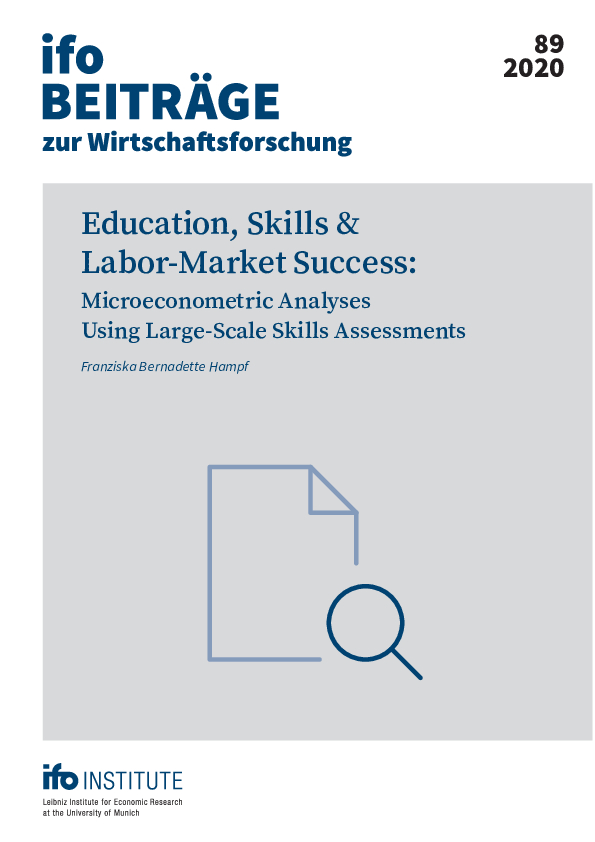Education, Skills & Labor-Market Success: Microeconometric Analyses Using Large-Scale Skills Assessments
ifo Institut, 2020
ifo Beiträge zur Wirtschaftsforschung / 89

The aim of the thesis is to gain a better understanding of the relationship between education, skills and labor-market outcomes. Based on high-quality skill data from the PIAAC Survey of Adult Skills, Chapter 2 studies the effect of schooling on cognitive skills, exploiting the staggered introduction of a compulsory ninth grade in schools across German federal states. Results suggest that the additional year of schooling increased numeracy skills of basic-track students by 0.2 SD.
Chapter 3 investigates the effect of eco-nomic conditions at high-school graduation on college investments, skill formation, and labor-market success. For identification, the analysis exploits business-cycle fluctuations at high-school graduation over a 20-year period across 28 developed countries as source of exogenous variation in labor-market opportunities. Findings suggest that recessions increase college enrolment and graduation, skills, monthly wages, and participation in training activities.
Chapter 4 analyzes the role of cognitive skills in explaining differences in university wage premia across countries. Using international data from PIAAC, the study provides evidence that university wage premia vary substantially across countries. Conditioning on skills reduces these differences by about one quarter. While part of the wage premium in each country captures differential selectivity into university, its extent cannot account for the cross-country differences. Results from explorative analyses suggest that part of the contribution of skills to university wage premia reflects a positive skill effect of university education.
Chapter 5 analyzes data from the PIAAC Survey of Adult Skills to compare employment probabilities over the working-life cycle for individuals with vocational and general education. An initial employment advantage of vocational education relative to general education turns into a disadvantage later in life.